
This open book offers up-to-date advice and practical guidance on how to undertake a discrete choice experiment as a tool for environmental valuation. It discusses crucial issues in designing, implementing and analysing choice experiments. Compiled by leading experts in the field, the book promotes discrete choice analysis in environmental valuatio...

This book analyses the considerable variation in the shares of private provision for core services in education, health and social services, in the Scandinavian countries.The chapters compare countries, service areas, and the for-profit, non-profit and public sectors. Each focuses on different levels of change: the mix of welfare providers, nationa...
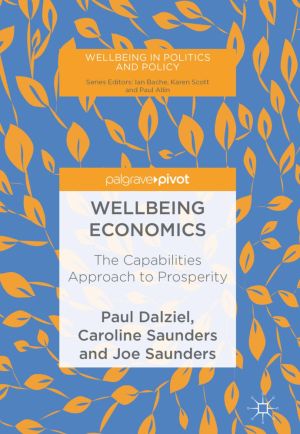
Economists have long sought to maximise economic growth, believing this to be their best contribution to improving human welfare. That approach is not sustainable in the face of ongoing issues such as global climate change, environmental damage, rising inequality and enduring poverty. Alternatives must be found.
This book addresses that challenge....
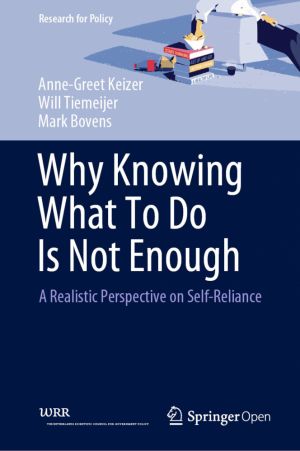
This book sets out to explain the reasons for the gap between "knowing" and "doing" in view of self-reliance, which is more and more often expected of citizens. In today's society, people are expected to take responsibility for their own lives and be self-reliant. This is no easy feat. They must be on constant high alert in...
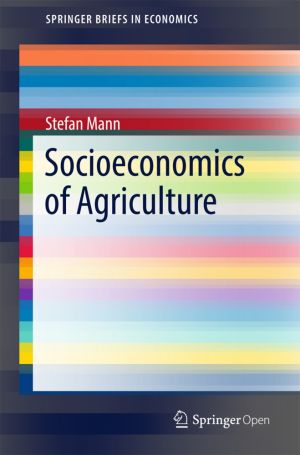
This book applies for the first time emerging concepts of socioeconomics to analyse an economic sector, namely agriculture. It considers the rational choices of all actors in the system (just as agricultural economists do) and their cultural preferences and constraints (just as rural sociologists do). Socioeconomic concepts are subsequently used to...
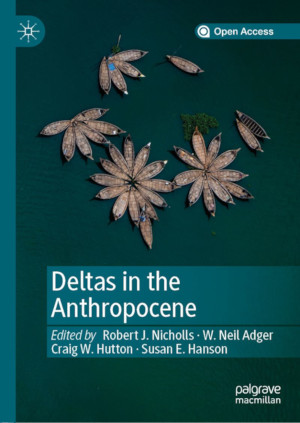
The Anthropocene is the human-dominated modern era that has accelerated social, environmental and climate change across the world in the last few decades. This book examines the challenges the Anthropocene presents to the sustainable management of deltas, both the many threats as well as the opportunities. In the world's deltas the Anthropocen...

This open access book provides an exploration of the consequences of the ontological differences between natural and social objects (sometimes described as objects of nature and objects of thought) in the workings of causal and agency relationships. One of its important and possibly original conclusions is that causal and agency relationships do no...

Principles of Microeconomics is an adaptation of the textbook, Microeconomics: Markets, Methods, and Models by D. Curtis and I. Irvine, which provides concise yet complete coverage of introductory microeconomic theory, application and policy in a Canadian and global environment.
This adaptation employs methods that use equations sparingly and do...

Microeconomics: Markets, Methods, and Models by D.Curtis and I. Irvine provides concise yet complete coverage of introductory microeconomics theory, application and policy. The textbook begins with an explanation and development of the standard tools of analysis in the discipline and carries on to investigate the meaning of 'well-being' i...

This important textbook has been revised and updated to continue its focus on the link between ethics and economic policy analysis, whilst ensuring that perspectives addressing the moral limits of the market, latest behavioural economics literature, and the changes in inequality over the years are included. Basic philosophical concepts are systemat...

This book was written to serve as an introduction to logic, with in each chapter – if applicable – special emphasis on the interplay between logic and philosophy, mathematics, language and (theoretical) computer science. The reader will not only be provided with an introduction to classical logic, but to philosophical (modal, epistemic, deontic...
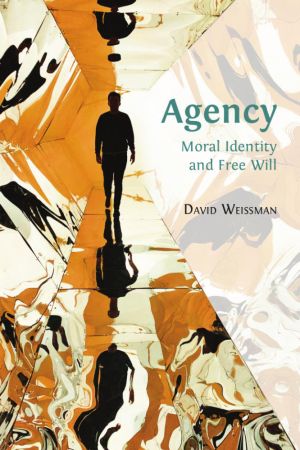
There is agency in all we do: thinking, doing, or making. We invent a tune, play, or use it to celebrate an occasion. Or we make a conceptual leap and ask more abstract questions about the conditions for agency. They include autonomy and self-appraisal, each contested by arguments immersing us in circumstances we don't control. But can it be t...
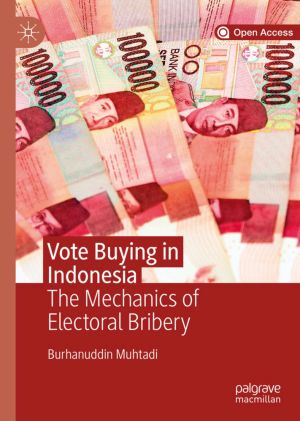
Muhtadi's analysis of vote-buying in post-democratization Indonesia is original, profound, subtle, nuanced, and convincing as well as beautifully organized and well written. Equally important, its imaginative policy prescriptions will be widely read and cited as a significant contribution to the literature of comparative electoral politics. �...
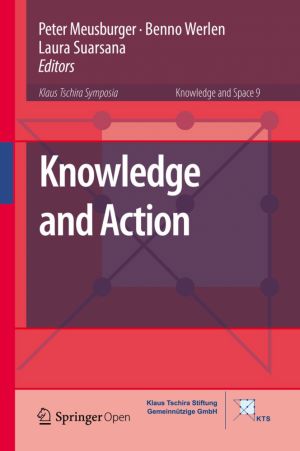
This volume explores interdependencies between knowledge, action, and space from different interdisciplinary perspectives. Some of the contributors discuss knowledge as a social construct based on collective action, while others look at knowledge as an individual capacity for action. The chapters contain theoretical frameworks as well as experiment...
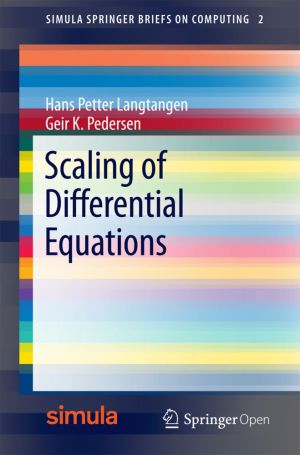
The book serves both as a reference for
various scaled models with corresponding dimensionless numbers, and as a
resource for learning the art of scaling.
A special feature of the book is the emphasis on how to create software
for scaled models, based on existing software for unscaled models.
Scaling (or non-dimensionalization) is a
mathematical...
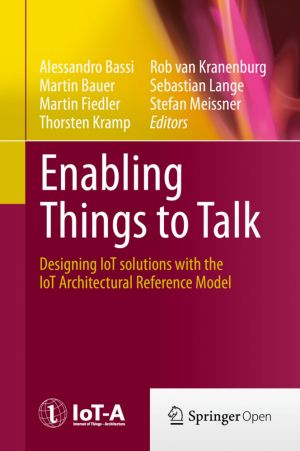
The Internet of Things (IoT) is an emerging network superstructure that will connect physical resources and actual users. It will support an ecosystem of smart applications and services bringing hyper-connectivity to our society by using augmented and rich interfaces. Whereas in the beginning IoT referred to the advent of barcodes and Radio Freque...

This book discusses individual, collective, and institutional responsibilities with regard to vaccination from the perspective of philosophy and public health ethics. It addresses the issue of what it means for a collective to be morally responsible for the realisation of herd immunity and what the implications of collective responsibility are for ...
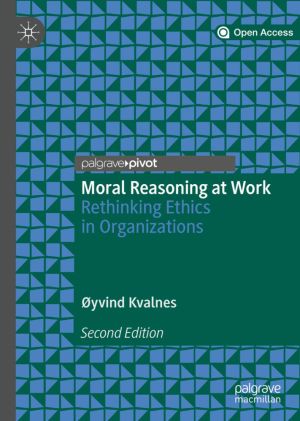
Moral dilemmas are a pervasive feature of working life. Moral Reasoning at Work offers a fresh perspective on how to live with them using ethics and moral psychology research. It argues that decision-makers must go beyond compliance and traditional approaches to ethics to prepare for moral dilemmas.
The 2nd edition has been updated with a range of...
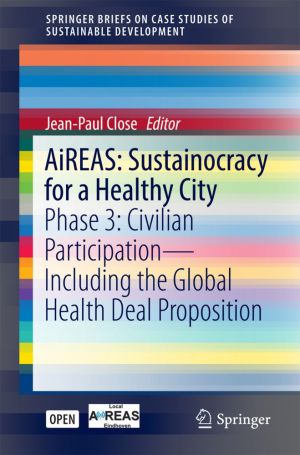
This volume describes phase 3 of the AiREAS multidisciplinary cocreation effort to produce a Healthy City. Phase 1 referred to making visible the invisible from an air quality and human exposure perspective. Phase 2 studies air quality related to health and Phase 3 looks at air quality, health and lifestyle from the perspective of persuasion to inn...
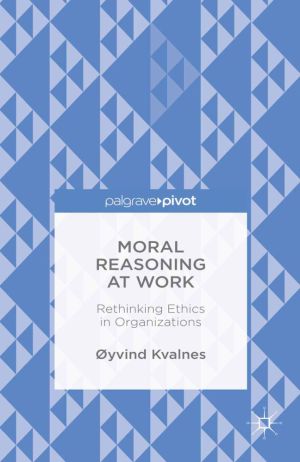
Moral dilemmas are a pervasive feature of working life. Moral Reasoning at Work offers a fresh perspective on how to live with them using ethics and moral psychology research. It argues that decision-makers must go beyond compliance and traditional approaches to ethics to prepare for moral dilemmas....

Phylogenetic diversity is now a key concept for biodiversity conservation due to its link to option value, evolutionary potential and to the possibility of guiding conservation across scales. Present facilities for obtaining molecular sequences and metagenomes are powering this research field, rendering available detailed information of phylogeneti...
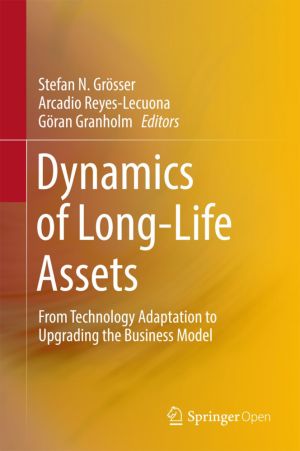
The editors present essential methods and tools to support a holistic approach to the challenge of system upgrades and innovation in the context of high-value products and services. The approach presented here is based on three main pillars: an adaptation mechanism based on a broad understanding of system dependencies; efficient use of system knowl...
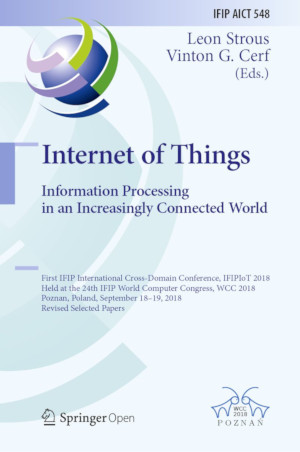
First IFIP International Cross-Domain Conference, IFIPIoT 2018, Held at the 24th IFIP World Computer Congress, WCC 2018, Poznan, Poland, September 18-19, 2018, Revised Selected Papers...
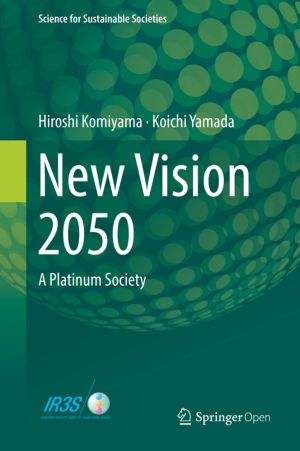
This book presents the "New Vision 2050," which adds the concept of the "platinum society" to the "Vision 2050".The 20th century was a century in which energy led the development of material civilization, resulting in deletion of resources, global warming and climate change. What form should sustainable material and en...

This book explores the implications of acknowledging uncertainty and black swans for regulation of high-hazard technologies, for stakeholder acceptability of potentially hazardous activities and for risk governance. The conventional approach to risk assessment, which combines the likelihood of an event and the severity of its consequences, is poorl...
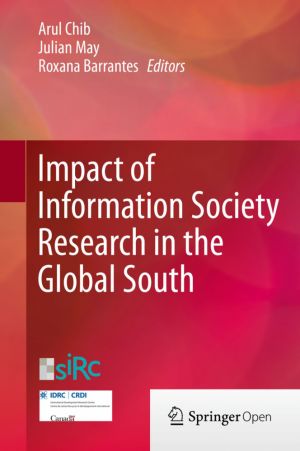
The second volume in the SIRCA book series investigates the impact of information society initiatives by extending the boundaries of academic research into the realm of practice. Global in scope, it includes contributions and research projects from Asia, Africa and Latin America. The international scholarly community has taken a variety of approach...

This volume seeks to further the use of formal methods in clarifying one of the central problems of philosophy: that of our free human agency and its place in our indeterministic world. It celebrates the important contributions made in this area by Nuel Belnap, American logician and philosopher.Philosophically, indeterminism and free action can see...
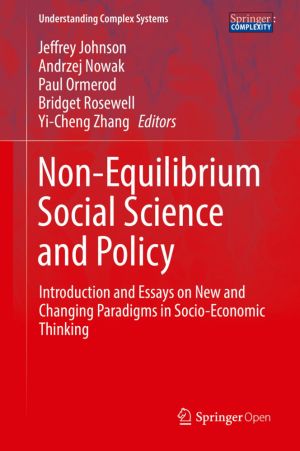
The overall aim of this book, an outcome of the European FP7 FET Open NESS project, is to contribute to the ongoing effort to put the quantitative social sciences on a proper footing for the 21st century. A key focus is economics, and its implications on policy making, where the still dominant traditional approach increasingly struggles to capture ...
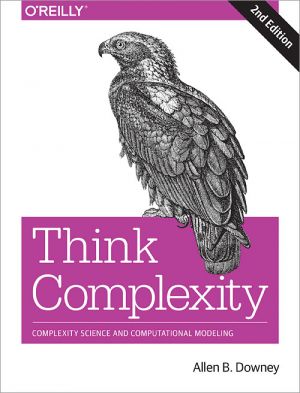
Complexity science uses computation to explore the physical and social sciences. In Think Complexity, you'll use graphs, cellular automata, and agent-based models to study topics in physics, biology, and economics.
Whether you're an intermediate-level Python programmer or a student of computational modeling, you'll delve into exam...
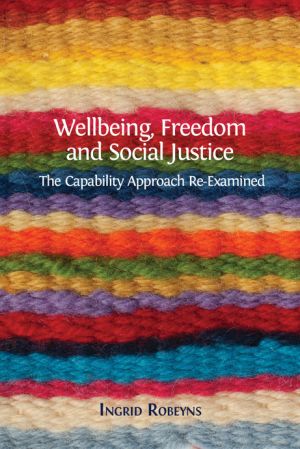
How do we evaluate ambiguous concepts such as wellbeing, freedom, and social justice? How do we develop policies that offer everyone the best chance to achieve what they want from life? The capability approach, a theoretical framework pioneered by the philosopher and economist Amartya Sen in the 1980s, has become an increasingly influential way to ...
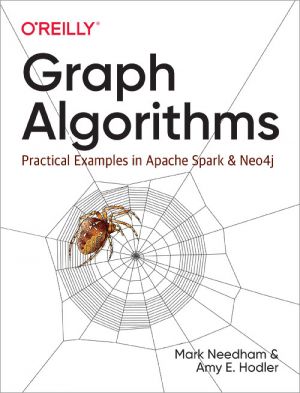
Learn how graph algorithms can help you leverage relationships within your data to develop intelligent solutions and enhance your machine learning models. With this practical guide, developers and data scientists will discover how graph analytics deliver value, whether they're used for building dynamic network models or forecasting real-world ...
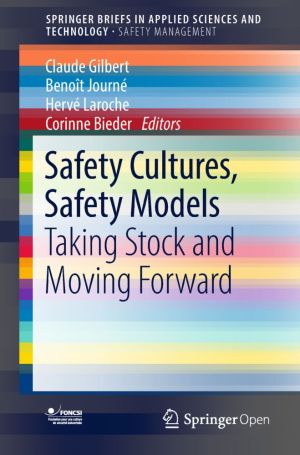
The objective of this book is to help at-risk organizations to decipher the "safety cloud", and to position themselves in terms of operational decisions and improvement strategies in safety, considering the path already travelled, their context, objectives and constraints. What link can be established between safety culture and safety mod...
